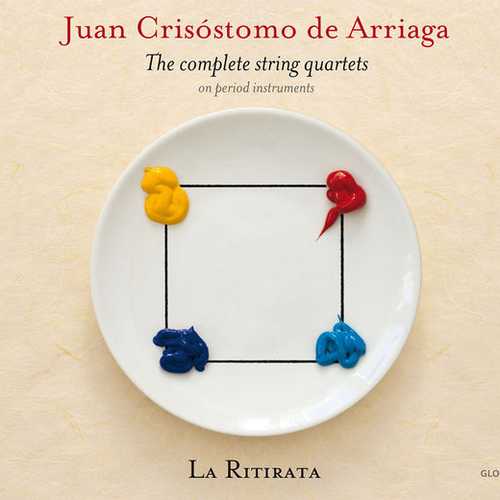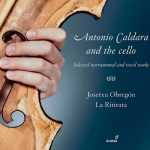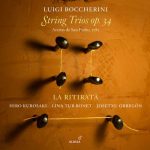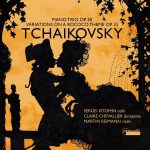
Composer: Juan Crisóstomo de Arriaga
Performer: La Ritirata
Format: FLAC (tracks)
Label: Glossa
Release: 2014
Size: 1.39 GB
Recovery: +3%
Scan: cover
String Quartet No. 2 in A major
01. I. Allegro con brio
02. II. Tema con variaciones: Andante
03. III. Menuetto: Scherzo – Trio
04. IV. Andante ma non troppo – Allegro
String Quartet No. 1 in D minor
05. I. Allegro
06. II. Adagio con espressione
07. III. Menuetto: Allegro – Trio: Piu moderato
08. IV. Adagio – Allegretto
String Quartet No. 3 in E flat major
09. I. Allegro
10. II. Pastorale: Andantino
11. III. Menuetto: Allegro – Trio: Plus lent
12. IV. Presto agitato
13. Tema variado en cuarteto Op. 17
Recorded: June – July 2013
Recording Venue: Real Conservatorio de Musica, Sala Tomas Luis de Victoria, Madrid, Spain
It is no real surprise that Josetxu Obregón’s La Ritirata has recorded the string quartets of Juan Crisóstomo de Arriaga to follow up its earlier Early Baroque programme of ‘Il Spiritillo Brando’, also on Glossa. Cellist Obregón’s principal teacher is Anner Bylsma and the two musicians share a deep fascination with the music of an earlier Classical composer in Luigi Boccherini.
In this new recording the Bilbao-born Obregón is joined by violinists Hiro Kurosaki and Miren Zeberio, and viola Daniel Lorenzo: the underlying spirit of La Ritirata being of an intensive consideration of musical (and other) sources before attempting fresh interpretations of scores. They have also included the ‘Tema variado en cuarteto’ Op 17 – in order to get closer to the sound world of the Spanish composer, who left his native Basque Country at the age of 15 to study and compose in Paris in 1821. Five short years of life remained to him before an untimely death ended a hugely promising career.
Original scores, a violin treatise by Arriaga’s teacher in Paris and the use of period instruments for the first time on a recording of the Arriaga works, all form the backbone of the critical apparatus for La Ritirata’s new and vital approach to these portentous works. Arriaga’s significance in music is currently being shorn of its romantic legend and replaced by an assessment which is still intriguing but greatly more realistic.



